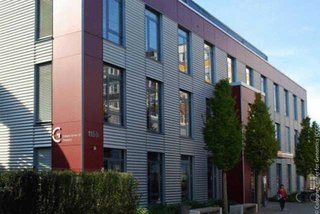The West German Genome Center (WGGC) will be funded by the Ministry of Culture and Science of the state of North Rhine-Westphalia (NRW) for a further two years, with a total project volume of 8.25 million euros. By establishing the WGGC, the University of Cologne (spokesperson Professor Dr Michael Nothnagel), University of Bonn (spokesperson Professor Dr Joachim Schultze) and HHU Düsseldorf (spokesperson Professor Dr Dagmar Wieczorek) have created a collaborative competence centre for state-of-the-art genome sequencing that closely collaborates which other partners, such as the German Center for Neurodegenerative Diseases (DZNE) in Bonn. The WGGC has expanded and now also includes RWTH Aachen University (spokesperson Professor Dr Ingo Kurth).
Since it was founded in 2019, the WGGC has gained high national and international recognition. It makes genome sequencing technologies available to the medical and life sciences at the highest competitive level internationally. The data obtained are used in ageing and cancer research, in research on neurodegenerative and inflammatory diseases, but also in virology, biodiversity research or plant breeding. The aim of the two-year funding by North Rhine-Westphalia is to contribute to the strong position of the WGGC and to develop a sustainable structure.
The pooling of competences in the WGGC enables the scientific institutions in NRW and beyond to ensure excellent research. The WGGC is characterized by the availability of many different cutting-edge technologies in combination with the ongoing development and advancement of analytical protocols and bioinformatics approaches for new scientific tasks. “The additional funding will enable us to conduct research that directly benefits society,” said Professor Dr Michael Nothnagel, Managing Director of the Cologne Center for Genomics (CCG) at the University of Cologne and spokesperson of the WGGC as well as its Cologne site CCG. “One outstanding example was the very rapid response to the challenges at the beginning of the COVID-19 pandemic. Starting from the WGGC and its infrastructure, a research programme was established in a very short time which involved many other scientists outside the WGGC and led to a better understanding of the disease, its epidemiology and treatment”, Professor Dr Joachim Schultze, Head of the Research Area Systems Medicine at the DZNE and Bonn spokesperson of the WGGC, added.
“Genome sequencing can be one of the keys to successfully treating previously incurable diseases. The West German Genome Center, with scientists from Bonn, Düsseldorf, Cologne and now Aachen, has gained an international reputation for using genetic analysis to individually adapt treatment options to the needs of patients,” said Ina Brandes, Minister of Science. “The project shows that North Rhine-Westphalia as a scientific location is particularly successful when scientists from various universities pool their expertise and work together on a project. I'm sure that this will make cutting-edge research 'made in NRW' available to the benefit humans.” Numerous experts work together at the four university locations, contributing their specialist knowledge from different biological fields – from microbiomes to plant and animal model organisms all the way to human beings. In addition to scientific work, the Collaborative Competence Centre also enables teaching and continuing professional development opportunities both within the WGGC and in society. For example, summer schools for doctoral candidates and a retreat within the centre are planned, as well as several bio-data science evenings.
Media Contact:
Professor Dr Michael Nothnagel
Cologne Center for Genomics
+49 221 478 96847
michael.nothnageluni-koeln.de
Press and Communications Team:
Jan Voelkel
+49 221 470 2356
j.voelkelverw.uni-koeln.de
Further information:
https://wggc.de
